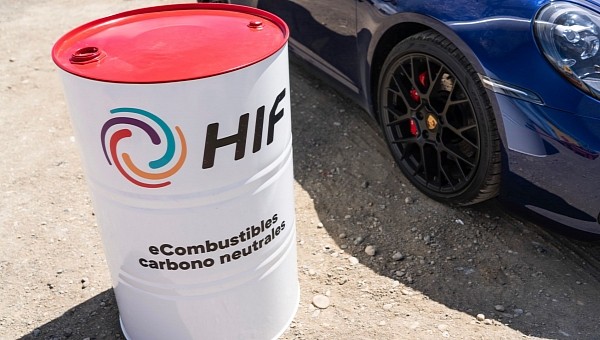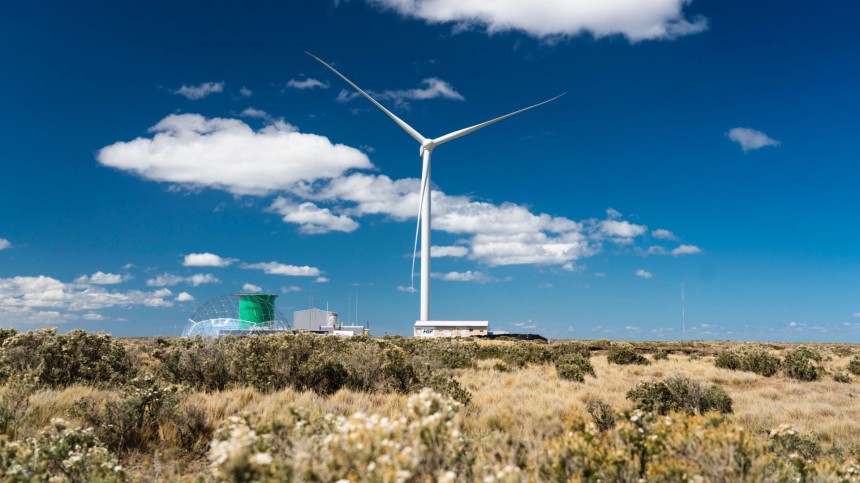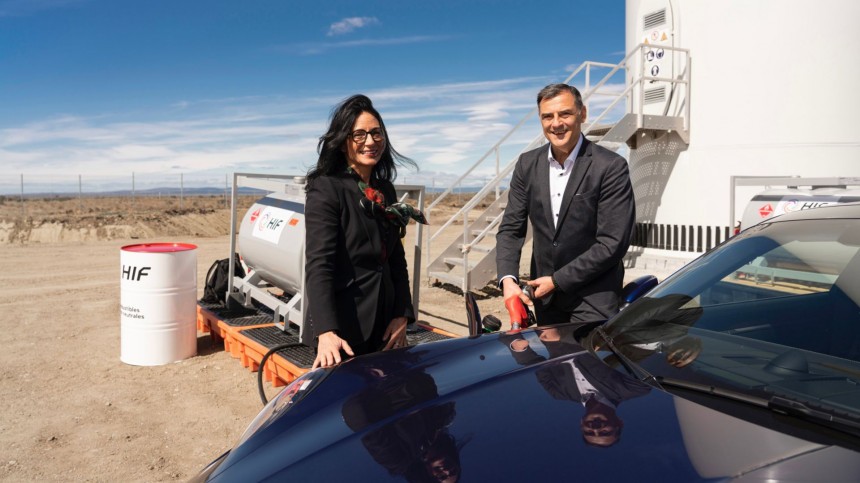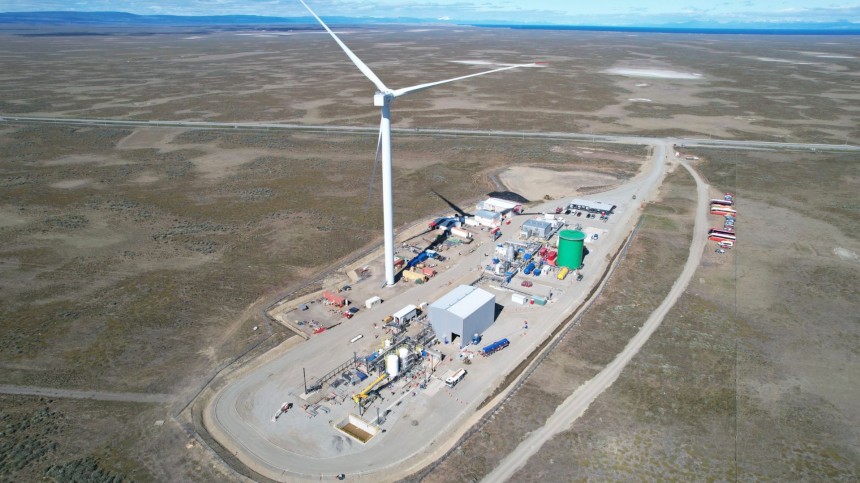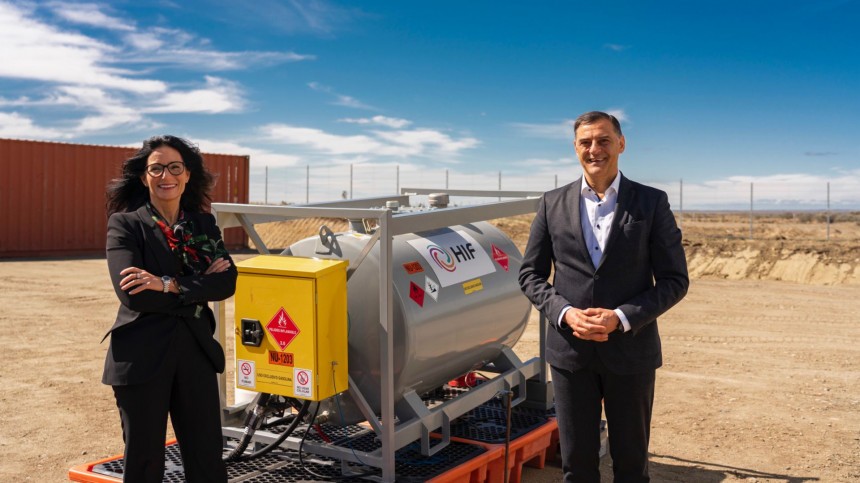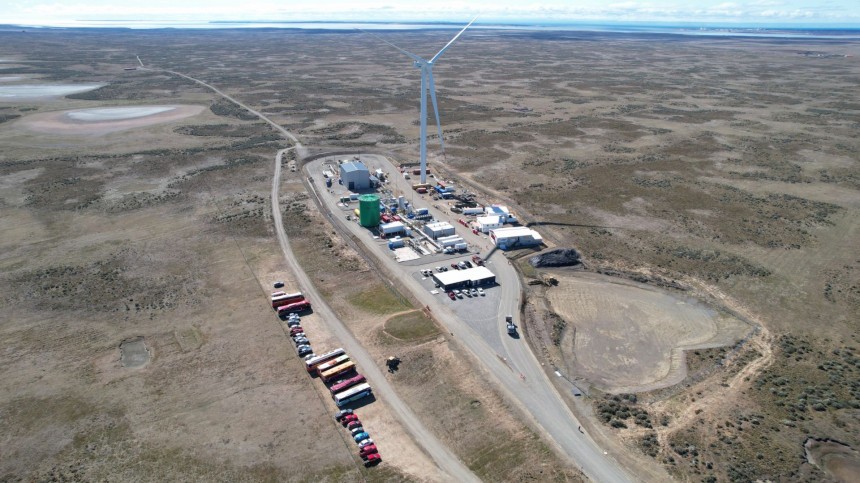Several carmakers announced that they will be fully electric by 2035 or 2040. Meanwhile, top executives say that emerging markets will have renewable or synthetic fuels as a solution to fight climate change. The apparently discrepant news became a bit clearer with something Germany threatened to do in the context of the European Union’s (EU) new emission rules.
The EU recently approved a plan to cut carbon emissions from cars by 100% in 2035. However, Germany was not pleased with the decision not to ensure that synthetic fuels would be exempt from the new regulations. If they aren’t, the country will vote against them. In practical terms, they’re equivalent to banning combustion engines. For Germany, synthetic fuels are carbon neutral – and that is correct.
The main concern with burning fossil fuels is that they are putting back into the atmosphere carbon that was imprisoned under the sol for millions of years. The increase in the amount of carbon in the atmosphere makes the greenhouse effect more pronounced, raising the Earth’s temperature. For the record, the greenhouse effect is what allows life to bloom on Earth by helping it keep warm temperatures. Without this natural phenomenon, the planet would burn when exposed to the sun and freeze anywhere it did not shine.
If any fuel is elaborated with the carbon that already exists in the atmosphere, it decreases the amount of the element in this environment and just returns it when it is consumed. Renewable fuels such as ethanol use plants or biomass to obtain the carbon they need, which plants extract from the air. Synthetic fuels skip the middleman and pull it directly from the atmosphere.
Detractors of both solutions argue that it makes no sense to spend energy to manufacture fuel. They also attack renewable fuels with the idea that you could plant food instead of sugarcane or whatever people use to make ethanol. In both cases, the idea that these fuels will keep combustion engines alive is probably what they hate the most. However, this seems to be what Germany wanted to happen.
At least one German car company is evaluating and producing synthetic fuels. That’s Porsche, which opened a pilot plant in Chile. The automaker argues that the so-called eFuel would allow current combustion-engined vehicles to run with its sustainable option. However, the implications are much broader than just keeping old cars running. They are also more complex.
The decision caused a stir inside the German government, which was formed through an alliance involving SPD, the Green Party, and FDP. Volker Wissing is the German Transport Minister, and he is affiliated with FDP. His decision clashes with what the Green Party defends: a ban on combustion engines. This party also supported ending nuclear energy, which would force Germany to rely even more on Russian gas. Ironically, more and more people now realize that nuclear power is carbon neutral.
The Associated Press talked to Benjamin Stephan, a campaigner from Greenpeace, and heard something we frequently hear from EV advocates. According to Stephan, the same amount of electricity will take a battery-electric car five times further than a car powered by synthetic fuels. That’s quite vague: not all EVs present the same efficiency, and that is also the case among ICE cars: some are better than others in that regard.
On average, combustion-engined vehicles can convert around 20% of the chemical energy contained in fuels into movement. That alone would prove Stephan right without the need to include synthetic fuels in this equation. However, the best engines can convert a bit more than 40% of the energy gasoline contains. And there are energy losses in making synthetic fuels that need to be accounted for, so the Greenpeace campaigner could have been wrong either for overestimating or underestimating the whole thing.
Jason Fenske, from Engineering Explained, once traveled 1,963 miles (3,159 kilometers) with the same energy contained in 16.6 gallons (62.8 liters) of gasoline. That’s equivalent to 118.3 mpg (1.99 l/100 km or 50.3 km/l). The most efficient pure ICE vehicle for sale in the U.S. is the 2023 Mitsubishi Mirage, with a fuel economy of 39 mpg (6 l/100 km or 16.6 km/l). It is three times less efficient than the Tesla Model 3 Fenske drove.
As interesting as the efficiency discussion is, the truth is that it is irrelevant. The argument that governments and environmental protection organizations use to focus on battery-electric vehicles (BEVs) is that ICE vehicles emit carbon because they burn fossil fuels, which causes climate change and may destroy the world. What about mining all raw materials that batteries will need in the quantities necessary to make BEVs? Greenpeace and its pals should have that in mind.
Germany wants to keep combustion engines alive by burning synthetic fuel. Italy also said it would not approve the ban. It is worried about its automakers, especially those in Motor Valley. Ferrari and Lamborghini would love synthetic fuel to keep their V8s, V10s, and V12s roaring. Italy’s Energy Minister said that "Italy believes that the choice of electric should not be the only way to achieve zero emissions in the transition phase."
Gilberto Pichetto Fratin’s choice of words is interesting. If the goal of the EV shift is to end carbon emissions, and it can be solved without exclusively adopting electric solutions, isn’t the transition complete? What is left to achieve? What is the transition about: making carbon-neutral cars or electric cars? That is not the same. If a shift to electric vehicles is still the objective, what is the reason for doing so? Simply put, are EVs a means or a goal?
Germany and Italy are betting that they are a means. That said, they want other paths to carbon neutrality, and the Germans are even more specific: they want synthetic fuels. In other words, combustion engines that can deal with these fuels. If they can burn the eFuel, ethanol would be a piece of cake. In other words, the machines developed to work with synthetic fuel would deal with any fuel easily as long as they all adopt the Otto cycle.
This is the only strategy in which an electric future and the use of combustion engines can coexist: if automakers are given the option of choosing any of them as long as carbon emissions are cut. That will ensure developing countries will still have what to use if EVs are too expensive for most people to buy. If carmakers are forced to ditch combustion engines, poor countries will have to buy whatever they have to offer. I’ll develop the idea in my new series of articles on the ICE ban. I hope you join me in the following ones.
The main concern with burning fossil fuels is that they are putting back into the atmosphere carbon that was imprisoned under the sol for millions of years. The increase in the amount of carbon in the atmosphere makes the greenhouse effect more pronounced, raising the Earth’s temperature. For the record, the greenhouse effect is what allows life to bloom on Earth by helping it keep warm temperatures. Without this natural phenomenon, the planet would burn when exposed to the sun and freeze anywhere it did not shine.
Detractors of both solutions argue that it makes no sense to spend energy to manufacture fuel. They also attack renewable fuels with the idea that you could plant food instead of sugarcane or whatever people use to make ethanol. In both cases, the idea that these fuels will keep combustion engines alive is probably what they hate the most. However, this seems to be what Germany wanted to happen.
The decision caused a stir inside the German government, which was formed through an alliance involving SPD, the Green Party, and FDP. Volker Wissing is the German Transport Minister, and he is affiliated with FDP. His decision clashes with what the Green Party defends: a ban on combustion engines. This party also supported ending nuclear energy, which would force Germany to rely even more on Russian gas. Ironically, more and more people now realize that nuclear power is carbon neutral.
On average, combustion-engined vehicles can convert around 20% of the chemical energy contained in fuels into movement. That alone would prove Stephan right without the need to include synthetic fuels in this equation. However, the best engines can convert a bit more than 40% of the energy gasoline contains. And there are energy losses in making synthetic fuels that need to be accounted for, so the Greenpeace campaigner could have been wrong either for overestimating or underestimating the whole thing.
As interesting as the efficiency discussion is, the truth is that it is irrelevant. The argument that governments and environmental protection organizations use to focus on battery-electric vehicles (BEVs) is that ICE vehicles emit carbon because they burn fossil fuels, which causes climate change and may destroy the world. What about mining all raw materials that batteries will need in the quantities necessary to make BEVs? Greenpeace and its pals should have that in mind.
Germany wants to keep combustion engines alive by burning synthetic fuel. Italy also said it would not approve the ban. It is worried about its automakers, especially those in Motor Valley. Ferrari and Lamborghini would love synthetic fuel to keep their V8s, V10s, and V12s roaring. Italy’s Energy Minister said that "Italy believes that the choice of electric should not be the only way to achieve zero emissions in the transition phase."
Gilberto Pichetto Fratin’s choice of words is interesting. If the goal of the EV shift is to end carbon emissions, and it can be solved without exclusively adopting electric solutions, isn’t the transition complete? What is left to achieve? What is the transition about: making carbon-neutral cars or electric cars? That is not the same. If a shift to electric vehicles is still the objective, what is the reason for doing so? Simply put, are EVs a means or a goal?
This is the only strategy in which an electric future and the use of combustion engines can coexist: if automakers are given the option of choosing any of them as long as carbon emissions are cut. That will ensure developing countries will still have what to use if EVs are too expensive for most people to buy. If carmakers are forced to ditch combustion engines, poor countries will have to buy whatever they have to offer. I’ll develop the idea in my new series of articles on the ICE ban. I hope you join me in the following ones.
